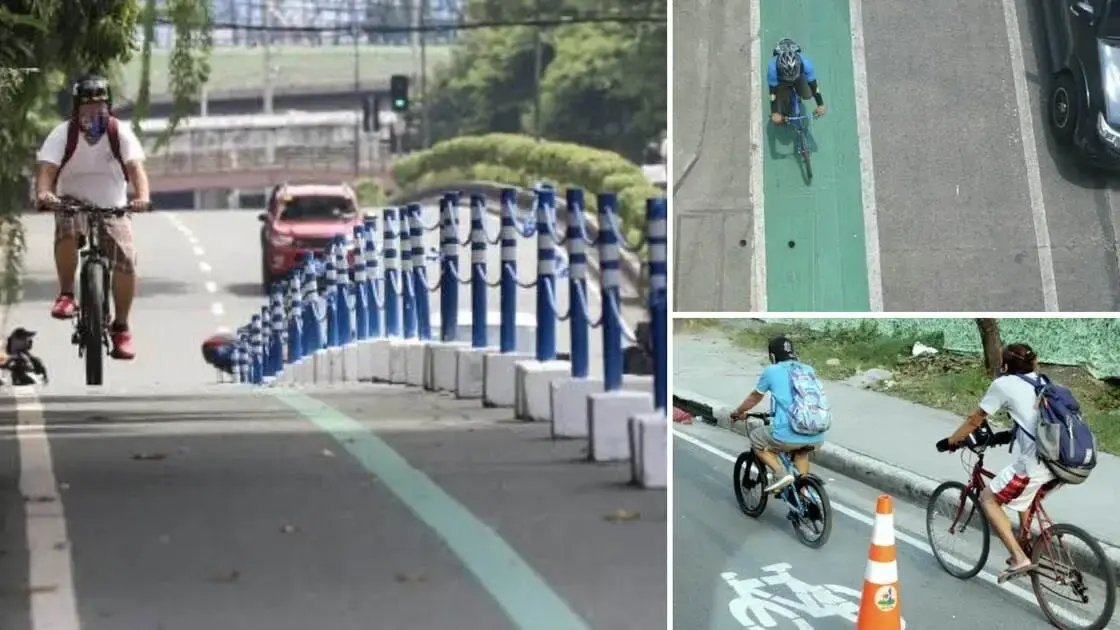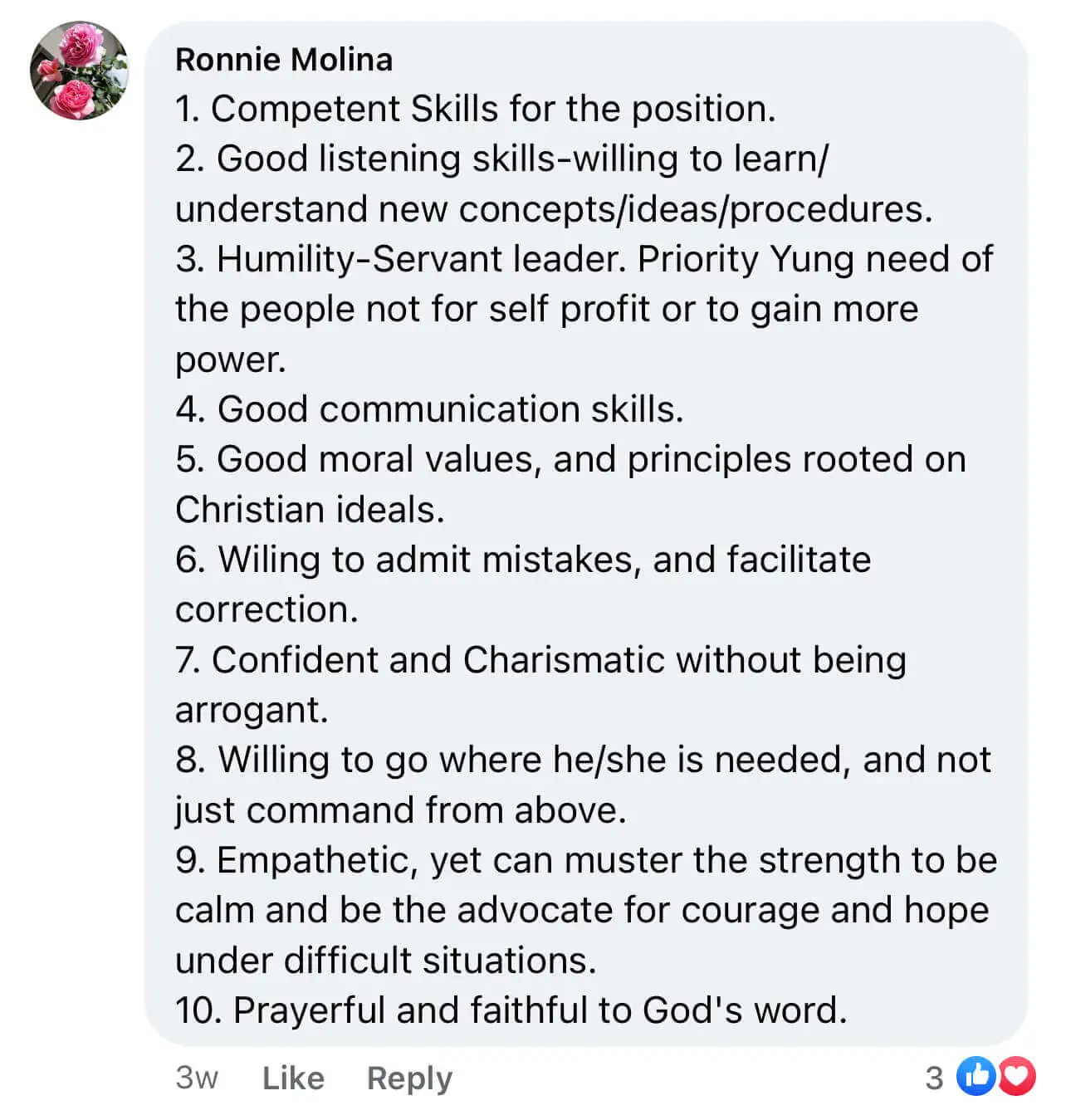
Bursting with energy and life, the Philippines’ streets are always bustling. On the go, some board jeepneys, buses, or their own private vehicles to travel from place to place. Now, an avid community is making more noise in the transport crowd – bikers.
In a welcome development for safer, more inclusive roads, 564 kilometers of bike lanes have been established in Metro Manila, Metro Cebu, and Metro Davao since 2020. They stand as exclusive lanes for bicycles on the sides of the road, ideally providing a cocoon for bikers as they traverse the car-dominated streets. According to the World Bank, the endeavor was the “largest bike lane construction program in the country’s history”.
The effort was spurred by the increase in bicycle riding because of the COVID-19 lockdown. Working in tandem with the Department of Public Works and Highways and the Metro Manila Development Authority, the Department of Transportation’s active transport plan foresees the expansion of bike lanes in the future, with a projected 2400 total kilometers built in 2028. It will also install bike lanes in other regions, specifically Ilocos, Central Luzon, Bicol, Western Visayas, and more.
Ushering in new kinds of roads as we know it, bikes are not only good for mobility but also for the planet. This Climate Change Consciousness Week, celebrate how active transport and sustainability go hand in hand.
Problems with Transportation in the Philippines
Many Filipinos have weathered frustrating traffic conditions all around the metro. Rain or shine, Filipinos wrestle through the gridlock of cars, buses, jeepneys, and other vehicles that ply the streets. “We have major traffic congestion in the Philippines. There are studies from years ago, even before the pandemic, that [showed] we lose billions of pesos due to traffic every day,” said Cristina Batalla, an advocate for active transport at Move as One Coalition.
“We have too many cars [and] private vehicles on the road,” she continued. Yet at the same time, only 11% of households in the Philippines own either a car, jeep, or van, according to Statista. “Ironically, pinaka-konti na nga yung may-ari ng private vehicles, pero yung minority na yun ang pinaka-nakakatraffic because our infrastructure accommodates that.”
(There are very few owners of private vehicles, but that minority is the one causing the most traffic.)
Beyond this, air and noise pollution beset Filipinos on their daily commute. “In 2019, there was a study that found [that] over 60,000 deaths of Filipinos have been attributed to poor air quality,” Batalla noted, referencing the Center for Research on Energy and Clean Air’s publication. “It affects the way we think and exist.”
She added that road danger is also very common in the Philippines; according to the World Health Organization, it is the leading cause of death among children and young adults worldwide. “It happens so often that it’s become normalized in our minds. May nasagasaan, tapos ang sisi, sa tao, hindi sa imprastraktura natin,” she added.
(When someone suffers a road collision, the person is blamed, not our infrastructure.)
All of these conditions create a difficult landscape for Filipinos to live in – impacting the environment in its wake. Transport is the largest contributor to the Philippines’ energy-related greenhouse gases, declared the TRANSfer Project. With this being the current state of affairs, the choice to bike has been willingly taken up by many advocates.
Importance of Biking
Bike lanes stand humbly across the metropolis, covering only one small strip of the road. However, as minimal as they may look, Batalla heralded that this new infrastructure is taking a much-needed step in enhancing mobility in the Philippines.
“Mobility is about what individuals do and might be able to do, our actual movements and experience, and what ways we’re able to get around from place to place. How bike lanes [and] active transport infrastructure improve health and well-being is by improving the mobility of people,” she began.
“Mobility is about having the freedom to choose among options. And the car should be just one of the options,” the transport advocate remarked. To Batalla, the ideal hierarchy of choices for transport should rank as follows: public transport (road, rail, water, air), then active transport (cycling, walking, scooting), and then private modes of transport (cars).
With this, she shared, “Biking should complement public transport.” Commonly called the “last-mile travel mode”, the vehicles cover short-distance trips that stretch across a few kilometers. As a cyclist, Batalla rides to Makati, Taguig, Pasig, and Quezon City, then loads her bike onto public transportation – either the Point-to-Point bus or MRT.
The economic benefits of biking have also made the practice attractive to users. “People really see it as a way to save money,” she commented. “I got [my e-bike] for 40,000 pesos. It’s quite a higher price point, but I saw it as an investment because, over time, it means I don’t have to book Grab all the time. And sometimes, it gives me the cheaper option of also riding the bus or the train, which is way cheaper.”
“It’s [also] cheaper than a car. People think that a car is a need and it’s an investment, but actually, you end up spending so much more money on gas and even repairs. And with a bicycle, sobrang mas konti yung kailangan,” she continued. Without gas expenses, cycling can truly lead the world towards greener pastures; one’s daily carbon emissions diminish by 67% just by riding a bike in lieu of a car, the University of California-Los Angeles underscored.
(And with a bicycle, you need much less.)
Biking also elevates people’s health, social ties, and political involvement. “A bicycle helps you feel more connected to yourself because you’re more aware of your body. You move yourself more,” she said. Healthline narrated that cycling is an all-around tool to boost well-being, with lower body strength and improved cognitive functioning being one of its many advantages. Batalla further emphasized how biking gives individuals the “freedom to go where [they] want because [they] don’t have to deal with traffic”.
“Socially, [biking] helps bridge you to other people. It helps you be more human. Maraming mga cycling communities because cycling brings people together. You’re able to go anywhere as a group and you feel safer,” she recalled.
(There are many cycling communities because cycling brings people together.)
In the same vein, she declared, “Biking has been an increasingly important tool for promoting democracy. More citizen groups and movements are actually using the bicycle as a way to protest.” Along with the Make it Safer Movement, she was one of the individuals who rallied against the removal of bike lanes on Ayala Avenue; she also pointed out how cycling communities lent their support to candidates in the 2022 elections. This year, the Pedal for People and Planet protest, which urged heightened action on climate change, was fully on wheels.
Overall, Batalla believes that bike lanes signify the heart of political participation. “Creating active transport infrastructure and bike-friendly cities is such a political thing to do. You cannot build people-centric and human-centered cities if you do not involve the people, the masses,” she described.
The Future of Biking in the Philippines
Despite the positive initiatives in promoting cycling in the Philippines, many issues are still barring it from becoming fully mainstream. While Social Weather Stations reported that ⅓ of households have at least one cycling member, a survey by Mobility Awards found that there were considerable drops in the number of bicycle users in major metropolitan Philippine cities.
“How they frame it is due to unsafe roads and poor cycling infrastructure,” Batalla mentioned. The bike lanes have met criticism due to frequent incursions by motorcycle riders; the Metro Manila Development Authority also discovered that over 2000 cyclists in the National Capital Region faced accidents in 2021.
As a result, transport advocates fear that biking might become restricted to being solely a recreational activity – no longer being considered a viable alternative to the population’s mobility needs. To remedy this, Batalla encouraged civil society to take on the 3E approach: engineering, enforcement, and education.
“[Engineering] means changing behavior through design,” she expressed. “In order for us to change behavior, we don’t just tell them what to do. We create physical nudges that will encourage people to do the right thing… Engineering will change physical spaces that will, for example, allow motor vehicles to slow down in streets.”
She opined, “The fact that we have bike lanes means our public [areas] are telling us that there is space for us here. We have this saying, ‘Build it and they will come.’ Once we have the infrastructure, people will naturally feel inclined to make use of it because it’s there.”
When it comes to enforcement, Batalla argued that it does not merely end with traffic regulators but is a process of building “the right carrots and sticks”. These can include offering incentives to businesses that promote employee cycling and implementing more stringent regulations for individuals responsible for road accidents.
Batalla highlighted that, at its core, a healthier transport scene involves “changed mindsets, beliefs, and values”. This starts with education. To influence the policies and budgets governments shape, “We need our leaders everywhere in local government, in the private sector, in companies, and even in civil society organizations to really set the tone for what kind of city we want to be building,” she professed. Along these lines, netizen Ronnie Molina stressed that a good leader is ready “to learn and understand new concepts, ideas, and procedures”.
Whether our destination is work, school, or recreational spaces, wheels are our lifeline to our communities. Let’s use our voices to bring forward more inclusive roads for everyone, breeding a shared journey towards connectivity, accessibility, and sustainability.
“The future of bike usage in the Philippines is where most people in the city will have the option to use it,” Batalla articulated. “In the future, hindi na tinitignan as a radical thing ang pagb-bike… Matutuwa tayo na, ‘Ah, wag ka na mag-kotse, mag-bike ka na lang.’”
(In the future, riding a bike will no longer be seen as a radical thing… We will be happy to say, ‘Ah, don’t drive a car, just ride a bike.’)
Good Governance Project
Good Governance is a series on Good News Pilipinas that celebrates positive government programs just like this one! Interested in learning more about other uplifting initiatives? Discover what the rest of the series has in store by following this link!
Then dive into It Takes a Village: How Barangay San Antonio in Pasig City’s Breastfeeding Program is Transforming Children’s Lives
Good News Pilipinas is a Lasallian Scholarum Awardee. Engage with us, share your experiences, and be a part of the positive community shaping the Philippines today and tomorrow. For more information and stories that fill us with pride or to share your good news story tips, message us on Facebook, Twitter, or Instagram, or e-mail editor@goodnewspilipinas.com











